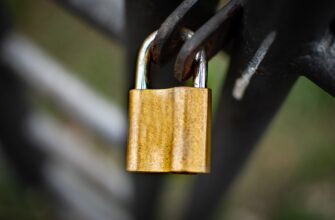When it comes to protecting your digital assets, one of the most critical tasks is safeguarding your funds from hackers. Whether you’re managing a cryptocurrency wallet, a bank account, or an e-commerce platform, understanding how to guard your funds from hackers is essential. This guide is designed for beginners who want to learn the basics of securing their financial information without overwhelming technical jargon.
Understanding the Threat: How Hackers Target Your Funds
Hackers use various methods to compromise financial systems, including phishing, malware, and social engineering. For beginners, it’s crucial to recognize these threats and take proactive steps to prevent them. Here are the most common ways hackers target funds:
- Phishing Attacks: Scammers send fake emails or messages that mimic legitimate services to trick users into revealing sensitive information.
- Malware Infections: Malicious software can be installed on devices to steal login credentials or access financial accounts.
- Weak Security Practices: Using simple passwords, unsecured networks, or untrusted apps can create vulnerabilities for hackers to exploit.
- Social Engineering: Hackers manipulate individuals through deception to gain access to financial data or systems.
By understanding these methods, beginners can take steps to mitigate risks and protect their funds effectively.
Essential Steps to Secure Your Funds
Securing your funds requires a combination of technical and behavioral practices. Here are the key steps for beginners:
- Use Strong Passwords: Create unique, complex passwords for all financial accounts. Avoid using the same password across multiple platforms.
- Enable Two-Factor Authentication (2FA): Add an extra layer of security by requiring a second verification method, such as a code sent to your phone.
- Monitor Your Accounts Regularly: Check your financial statements and transaction history for any suspicious activity. Report unusual transactions immediately.
- Use Secure Networks: Avoid accessing financial accounts on public Wi-Fi. Use a trusted, secure home network instead.
- Update Software Regularly: Keep your devices and apps up to date to patch vulnerabilities that hackers might exploit.
These steps are simple but highly effective in reducing the risk of hacking. For beginners, starting with one or two of these practices can make a significant difference in protecting funds.
Common Vulnerabilities and How to Fix Them
Even with basic security measures, beginners may encounter vulnerabilities. Here are some common issues and solutions:
- Weak Passwords: Use a password manager to generate and store strong passwords. Avoid using personal information like birthdays or names.
- Unsecured Devices: Ensure your devices are protected with antivirus software and regular updates. Avoid using outdated operating systems.
- Untrusted Apps: Only download apps from official app stores. Be cautious of apps that request unnecessary permissions.
- Phishing Scams: Verify the legitimacy of any request for personal information. Never click on suspicious links or provide credentials without verification.
By addressing these vulnerabilities, beginners can create a more secure environment for their funds.
FAQ: Answers to Common Questions
What is phishing, and how does it affect funds?
Phishing is a social engineering tactic where hackers send fake emails or messages to trick users into revealing sensitive information. If a user falls for a phishing scam, hackers can access financial accounts and steal funds.
How can I protect my funds from malware?
To protect against malware, install reputable antivirus software, keep your devices updated, and avoid downloading suspicious files or apps. Regularly scan your system for threats.
Is two-factor authentication worth it for beginners?
Yes, 2FA adds an extra layer of security. Even if a hacker obtains your password, they will need a second verification method to access your account. It’s a simple but effective measure for beginners.
What should I do if I suspect my funds are compromised?
If you suspect a breach, immediately change your passwords, contact your financial institution, and report the incident. Monitor your accounts closely and consider freezing credit lines if necessary.
How often should I review my financial accounts?
Review your financial accounts at least monthly. Check for unauthorized transactions and ensure that all accounts are secure. Adjust security settings as needed based on new threats.
By following these steps and staying informed, beginners can significantly reduce the risk of their funds being compromised by hackers. Remember, security is an ongoing process, and staying proactive is key to protecting your financial assets.








